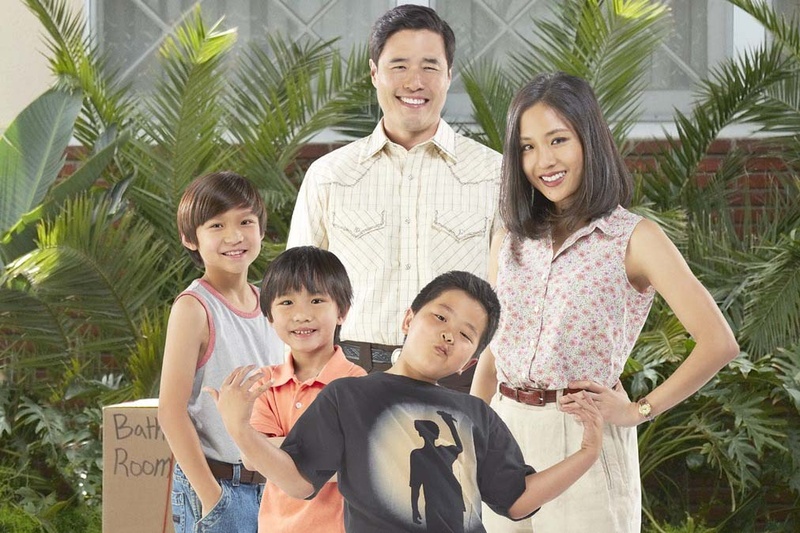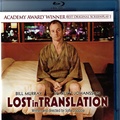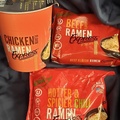There’s a new ABC sitcom being aired starting in February that I can hardly wait to see. I’m hoping Fresh Off the Boat will finally be a show where I can see people like me acting the way my family acts, with funny American situations but filtered through an Asian cultural perspective. I expect it’ll be a moment of critical mass for Asians on the U.S. pop consciousness.
It’s about time.
As a baby boomer, I grew up with very few Asian Americans on television. Few enough that everyone stood out. Even until recent years, my wife and I would point to the TV everytime we saw a minor character on TV played by an Asian, or an Asian face on a TV commercial, and yell, “Asian spotting!”
Among the first notable Asian Americans to be spotted on the small screen was Hawaii-born Filipino musician and comic Poncie Ponce, who was cast as the wise-cracking, ukulele-playing cab driver Kazuo “Kim” Quizado on the detective drama Hawaiian Eye which aired from 1959-1963.
My earliest memories of seeing an Asian on TV were of Hop Sing, the Chinese cook on Bonanza, a Western that also debuted in 1959 but ran until 1973. Hop Sing, played by U.S.-born actor Victor Sen Yung, wore a long queue hanging from under his cap, and diligently fed the Cartwright family for the run of the series, though I don’t recall that he ever cooked up Chinese food, or Chinese American dishes like chop suey, for Hoss and the others. He did face racism in a few episodes, though.
Then there was “Fuji” (whose name was given in the show as both Fuji Kobiaji and Fujiwara Takeo), the hapless prisoner of war from McHale’s Navy, a sitcom about a crew of a PT boat during WWII, played by Tokyo-born actor Yoshio James Yoda (who later went on to become an American citizen and serve a stint as a vice president for Toyota in Hawaii). The show aired from 1962-66 and like Hop Sing, Fuji was a good-natured houseboy and cook for the crew of the PT-73.
Later in the 1960s came the first Asian I could be proud of, the butt-kicking martial arts-fighting driver Kato in the superhero series Green Hornet, played by Bruce Lee, who would go on to become an icon in his 1970s kung fu movies. Star Trek brought us George Takei as Sulu in Star Trek, a revolutionary show for its time for its deliberate diversity.
There were TV shows in the 1970s with Asian Americans, but they were still supporting roles, not the star. Around the turn of the decade was Miyoshi Umeki, an actress well-known in her native Japan (and a co-star of the 1961 musical, Flower Drum Song), as Mrs. Livingston, the stereotypically meek but sweet and wise housekeeper in The Courtship of Eddie’s Father. The original Hawaii Five-0 featured several Asian actors, though not the leads. The current version of Five-0’s AAPI stars have much more important roles. A few years later in the mid-’70s Japanese Canadian actor Robert Ito played the assistant to Jack Klugman’s medical examiner in Quincy, M.E. (which was ironic since the character was partly based on Los Angeles’ JA celebrity medical examiner at the time, Thomas Noguchi). Jack Soo, who was Japanese American (his full name was Goro Suzuki), played a laid-back detective on the sitcom Barney Miller.
The 1980s was the decade when African Americans came of age in pop culture with Bill Cosby’s all-American black family, the Huxtables.
In 1994 a young Korean American comedian, Margaret Cho, was cast in All American Girl, the first Asian American family sitcom—our version of the Huxtables. It may have been well-intended, but its non-Asian producers played up Asian stereotypes and eventually criticized Cho for her weight and told her she wasn’t Asian enough. They even forced her to work with a coach to be “more Asian.” The series only lasted one season, and by the end the entire Asian American cast had been fired except for Cho and Amy Hill, who played the outlandish grandmother.
I’ve watched the DVD set of that season, and you could almost sense the producers flailing about, trying to tweak the show’s formula to find an identity. Maybe it was too early to just let Cho be herself and have the Asian and American culture and identity play out unabashedly, but after a promising start with Asian culture treated as an exotic backdrop to the trite sitcom setups, Asian identity became irrelevant as the shows developed, or were presented as familiar stereotypes. The plots were just typical sitcom fare.
It’s been 20 years since that debacle, and Asian Americans (and Asian Canadians) are finally plentiful onscreen, in bigger parts than before, even including a couple of starring roles.
John Cho has hit the bigtime on the big screen (the Harold and Kumar and Star Trek franchises help) and a recurring role (unless he’s really dead now) on Sleepy Hollow, but has also had featured roles on a couple of TV shows, the recently-pulled Selfie and Go On.
Sandra Oh was one of the leads on the now sans-Sandra medical drama Gray’s Anatomy. I loved Glee for most of its run in part because of several its ensemble actor/dancer/singers, Darren Criss, Harry Shum Jr., and Jenna Ushkowitz, as well as a couple of cameos by Tamlyn Tomita. Maggie Q’s action series Nikita aired for four seasons before wrapping up, and it was fun to follow even though its plot suffered from Alias syndrome and got weirder and more tangled as the months went by.
Those show are no longer on the air, but current shows with prominent Asian Americans include Maggie Q in a new police drama, Stalker, The Walking Dead (Steven Yeun), Hawaii Five-0 version 2.0 (Grace Park, Daniel Dae Kim, Masi Oka, and others), and Bones (Michaela Conlin).
I’m a fan of a new action/adventure series Scorpion about a team of geniuses fighting bad guys (with Jadyn Wong as—wait for it, a brainiac but also a master mechanic who can make, or break, anything), and another new series, Agents of S.H.I.E.L.D. (Ming-Na Wen and Chloe Bennet) though it took a while for me to embrace its scattershot plotline.
Elementary is in its second season and Lucy Liu’s role as Joan Watson has grown considerably more independent. I’m waiting for the next season of Murder in the First (Ian Anthony Dale) and though it’s not exactly a heavyweight, Beauty and the Beast (Kristin Kreuk) has its moments.
The Mindy Project’s mastermind Mindy Kaling continues to be provocative, interesting, and hilarious while hardly ever leveraging her ethnicity, and on Modern Family, the youngest AAPI star at 7 years of age, Aubrey Anderson-Emmons, as Lily, the adopted Vietnamese daughter of Mitchell and Cameron is just plain adorable as well as sassy and funny as hell.
That’s a lot of prominent Asian faces in prominent roles, without cheap stereotypes, without Asian accents, or (outside of some kick-ass fight scenes) predictable martial arts moves.
And, more significantly, we’re getting another shot at an Asian American family sitcom.
Fresh Off the Boat has a lot of people, including me, excited, because this time the team behind the show is multicultural, with Asian American input.
Fresh Off the Boat is based on the memoir of the same title, written by Eddie Huang, a celebrity New York City chef. The series is about his Taiwanese family’s experiences when they move from Washington DC’s Chinatown to a white Orlando, Florida suburb in 1994, when Eddie was 11. The show will debut on Wednesday, February 4 with two new episodes (before and after Modern Family), and then settle into its weekly schedule on Tuesdays starting February 10.
There’s been some pushback on the title, because “fresh off the boat” or “FOB” has been used as a derogatory term for immigrants, especially Asian immigrants. But there are blogs that use the term, like “Absolutely Fobulous,” as a term of endearment for our collective Asian roots. Huang has defended the use of the phrase for his memoir, a series of TV shows he was involved in, and this series, as a way of reclaiming what had been a pejorative as a badge of honor.
The trailers that have been released (see below) are funny, and reflect the fact that a lot has changed in Hollywood since All American Girl. The executives behind FOTB are racially diverse, and Asian Americans are part of the writing team. Eddie Huang is a producer. And Hudson Yang, the 10-year-old star who plays the young Eddie Huang, is the son of Wall Street Journal columnist and Asian American media pioneer Jeff Yang, who’s been writing about his son’s adventure for the past year. I trust that this show will be something that AAPIs can be proud of, and that will help educate the rest of America to our experiences and issues, good and bad.
As Jeff Yang wrote in a May WSJ blog post with his Dad hat on, not his journalist’s skeptic hat: “The show is like nothing you will have ever seen before on television. If it makes it to air, it will blow minds, raise eyebrows and, to quote a line that my son says as Little Eddie, ‘change the game.’ I would honestly say the same if I weren’t the lead actor’s father. It’s that different. And provocative. And, yes, gut-bustingly funny.”
I can hardly wait. We should all tune in and give this series the chance it deserves.
* This article was originally published on Gil Asakawa’s blog, Nikkei View, on December 19, 2014.
© 2014 Gil Asakawa







